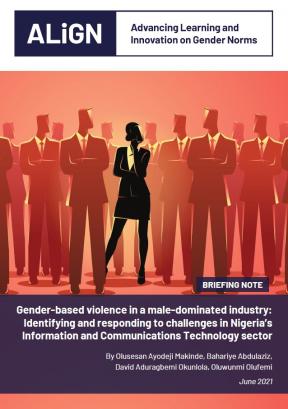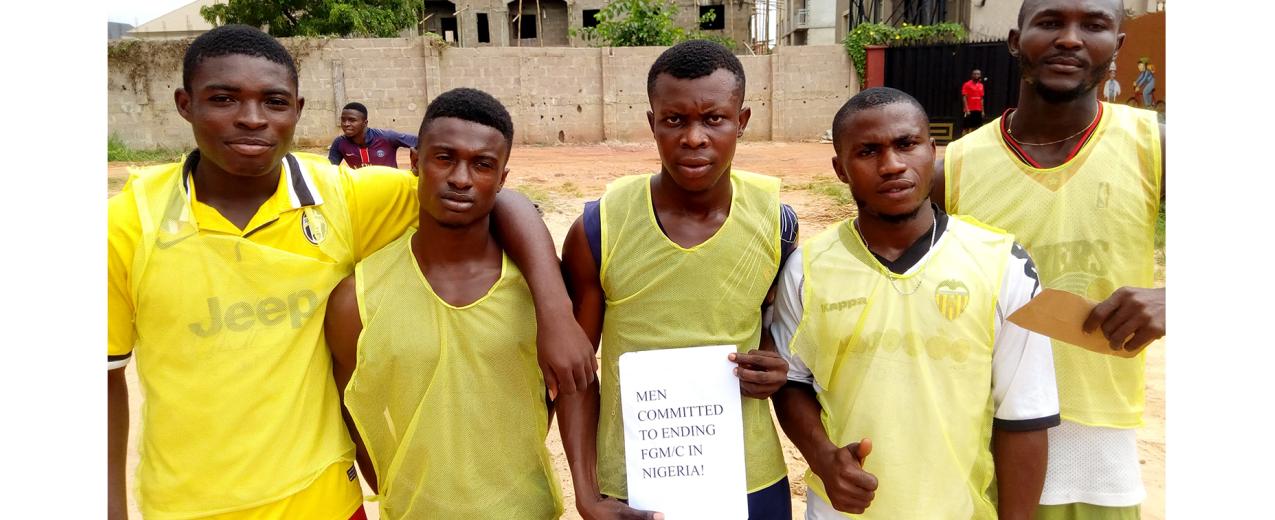
- Case study
- 9 September 2019
Using soccer to challenge norms around Female Genital Mutilation/Cutting
- Author: Ugwu Somtochukwu Nnamdi
- Published by: ALIGN
Female Genital Mutilation/Cutting (FGM/C) is deeply rooted in not just patriarchy and traditions here in Nigeria, but also in complete misconceptions. One such misconception about the practice is that it curbs a girl’s ‘promiscuity’. FGM/C remains a social norm in this country: many families engage in the practice simply because others are doing it. As a result, communities accept it as part of their culture and way of life.
According to 28TOOMANY (UK), 20 million women and girls have been through this ordeal in Nigeria. It is also projected that – if nothing is done – another 20 million women and girls will undergo FGM/C in Nigeria by 2030.
It is so vital to involve Nigeria’s youth in this fight: they are the ones who can end FGM/C in the next decade. Sadly, part interventions around FGM/C have failed to capture their interest and have been seen as boring and repetitive. Hence there is a reluctance of youth in Nigeria to engage in the country’s various campaigns to tackle this rights violation.
That is why the Society for the Improvement of Rural People (SIRP) an organisation committed to ending FGM/C here in Nigeria, mounted a project called “Kick out FGM/C” between September and December 2018. The project used soccer (football) as a tool to try and change norms around FGM/C and was implemented in the Akwuke community of Enugu State.
Before embarking on this project, SIRP had been working in the Akwuke community for a year, in partnership with The Girl Generation and Rockflower, holding a series of dialogue sessions with traditional rulers, religious leaders, women’s groups, men’s groups and teachers. We noticed that most interventions around FGM/C in Nigeria tended to involve older generations, rather than youth. In addition, most interventions relied on various traditional methods, such as training workshops, discussion groups and sensitisation programmes. But there was little attempt to use youth-friendly approaches.
So SIRP decided to explore ways in which soccer could become a vehicle for change, aiming for one major objective - to increase the involvement of youth in ending FGM/C in Nigeria.
SIRP began with a study of the level of awareness and involvement amongst youth in Akwuke in relation to FGM/C, adopting a descriptive research design.
The study was guided by two specific research questions:
- Have you ever heard of FGM/C?
- Would you love to see FGM/C ended in your community?
A multi-staged sampling procedure using a simple random sampling technique of balloting without replacement was used. We selected a sample of 210 youth who were accessing Akwuke’s only market. Our self-developed questionnaires provided the instrument for data collection, and the resulting data were analysed to answer the research questions.
Question 1: Have you ever heard of FGM/C?
| Yes | % | No | % |
|---|---|---|---|
| 10 | 4.76 | 200 | 95.2 |
After answering question 1, we explained the full meaning of FGM/C to participants before asking them question 2.
Question 2: Would you love to see FGM/C ended in your community?
| Yes | % | No | % |
|---|---|---|---|
| 190 | 90.47 | 20 | 9.52 |
While only a very small proportion of youth (10 out of 210) had heard of FGM/C, the vast majority (190 out of 210) were eager to see it ended in their community once they knew more about it.
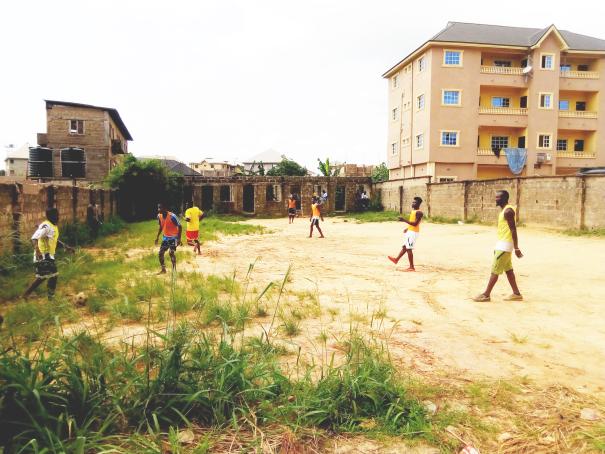
Adopting a youth-friendly approach
As a result of this study, SIRP decided to adopt a youth-friendly approach that would be engaging and interesting for youth. That approach was soccer. SIRP organised a five-a-side soccer tournament for six youth teams from the community (while all participants in this tournament were young men, we later organised a women’s tournament in the community).
The winners of this first tournament, the youth team from Atako, became our ‘end FGM/C’ champions for the community. This entailed cascading the lessons they had learned about FGM/C as a result of the tournament to other youth – a way to ensure the sustainability of this programme and its messages.
The following results had been achieved by the end of the project.
- Awareness of FGM/C among youth participants had increased from a baseline of 15% to 45%. This was made possible through discussions with participants during and after the tournament. We adopted a non-judgemental and open dialogue approach, which involved more listening and questioning than instructing. These discussions continued after the tournament to sustain changes in mindsets and opinions among youth around FGM/C.
- The involvement of participating youth in efforts to end FGM/C in the community increased from a baseline of 10% to 50%, as demonstrated by an increase in the number of youth who were taking the lead to advocate against the practice. There was also an increase in the number of activities organized by various youth to end FGM/C, such as soccer competitions, dialogue sessions and poster campaigns.
- The rate of FGM/C in the community fell from a baseline of 65% of girls aged 0-5 years at the start of the project to 45% in April 2019. We measured this by counting the number of girls who were mutilated/cut during their naming ceremonies (traditionally on the 8th day after birth, and a common practice in the Akwuke community). This reduction was confirmed by pre- and post-project surveys and interview sessions at the community level before and after the tournament – two key evaluation tools that have always proved very effective for our work here in Nigeria.
The figures were drawn from a series of interview sessions with various youth from the community at the end of the project. One major lesson learnt was that a huge number of youth (male and female) have a genuine desire to be more involved in ongoing activism to end FGM/C by 2030, but are not very active on this issue at the moment. This is largely because few interventions offer them the opportunity to take action or make their voice heard. Most non-governmental organisations, anti-FGM/C activists, and their own Government have failed to recognize youth as key allies in efforts to end FGM/C by 2030.
We therefore call for the greater use of various youth-friendly approaches that engage and mobilise youth. The world has promised to end FGM/C by 2030. Only the world’s youth can deliver on this promise, and it is vital that we involve them in our shared vision.
About the author

Find out more about Ugwu's work by reading his blog and following him on Twitter.
- Tags:
- Gender-based violence, Sport
- Countries / Regions:
- Nigeria
Report
31 March 2023
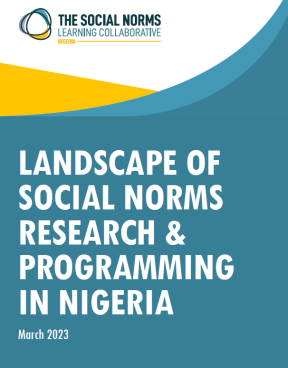
Briefing paper
2 November 2022
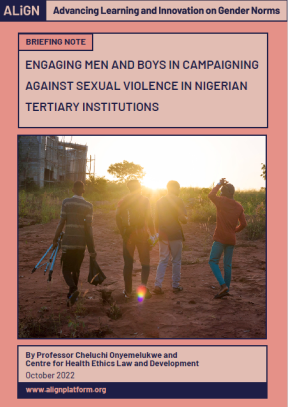
Briefing paper
24 June 2021
